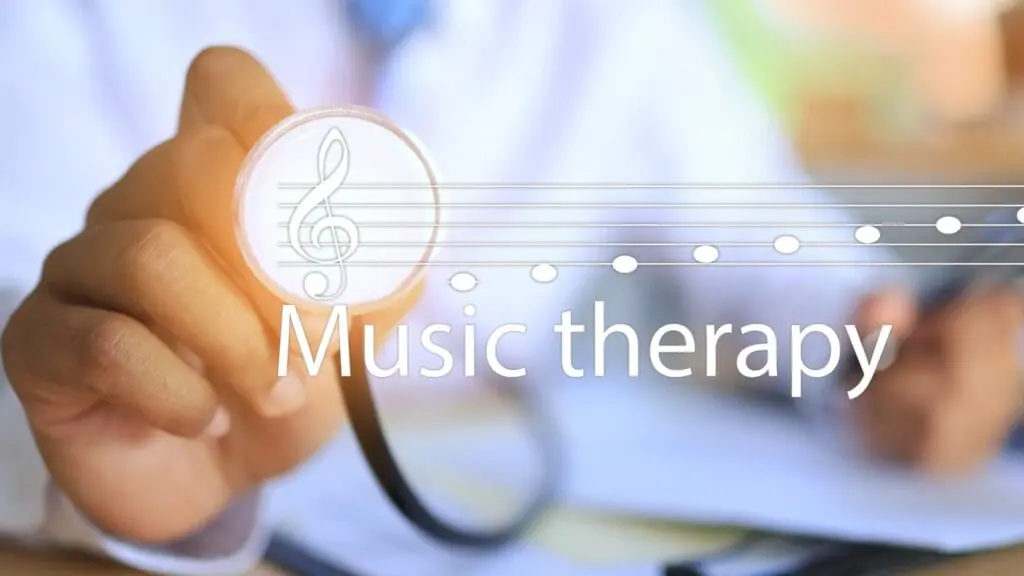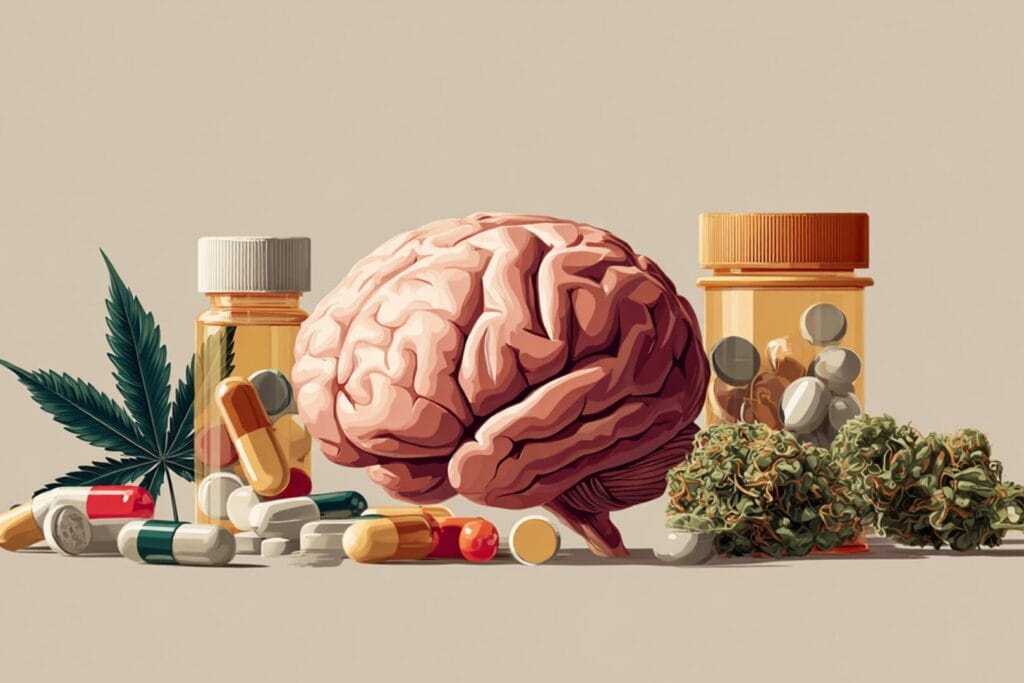As part of addiction recovery, it’s common to take part in various types of therapy. There are traditional methods, like counseling and support group participation. Then, there are emerging therapeutic areas that can be part of a holistic approach to treating substance use disorders. Among these are music therapy.
Music therapy is a unique way to explore your emotions, express yourself, and find a sense of peace among the challenges you face in addiction recovery. This therapeutic approach recognizes that music can stir emotions, evoke memories, and stimulate neural pathways associated with reward and pleasure.
When you take what you learn about music therapy during treatment, you can begin integrating it into your everyday life. It becomes a powerful tool in recovery for relaxation, introspection, and self-expression.
How Does Music Therapy Work?
Music therapy is an approach that uses music as a tool to address your physical, cognitive, emotional, and social needs. It integrates musical elements, including rhythm, harmony, melody, and lyrics, to achieve therapeutic goals.
A music therapist is a trained professional who learns more about your needs to tailor interventions appropriately. Music-making, listening, discussion, and reflection are incorporated during music therapy.
The process of music therapy usually includes the following steps:
- Assessment: The music therapist starts with an initial evaluation to learn more about your needs, preferences, challenges, and strengths. They might talk to you about not only your overall therapeutic goals but also your background in music and your preference for certain instruments or types of music.
- Setting goals: Based on what your therapist learns during your assessment, they will collaborate with you to set specific goals for therapy. These goals could relate to stress reduction, communication, emotional expression, or social interaction.
- Planning interventions: The therapist will create interventions tailored to your preferences and goals, such as listening to music, singing, composing, playing instruments, or participating in music-based exercises and games.
- Implementation: During music therapy sessions, you actively participate in the outlined activities under the guidance of your therapist. Your therapy sessions might occur individually or in a group, depending on your goals.
- Monitoring progress: Throughout your therapy experience, your music therapist will monitor your progress toward reaching your goals. The approach and interventions might be adjusted as needed. Your evaluation could include observing how you express yourself emotionally, your communication skills, or changes in your behavior.
- Closure and follow-up: As therapy progresses, your therapist will collaborate with you to determine the goals you’ve achieved and devise a plan to close out therapy. Follow-up sessions or recommendations for ongoing support might be provided to help you maintain progress and address your ongoing needs.
How Is Music Therapy Helpful in Addiction Treatment and Recovery?
Music therapy has several benefits in addiction treatment and recovery, including:
Emotional Expression and Regulation
When you struggle with addiction, you go through complex emotional experiences. You might feel shame and guilt, depression and anxiety. Music therapy provides a safe, supportive place to explore and process these emotions. Listening to or playing music can help with emotional regulation, stress reduction, and coping with complicated feelings without substances.
Relaxation and Stress Reduction
Music can evoke physiological responses that help with relaxation and stress reduction. Engaging in rhythmic activities or listening to calming music can help you deal with the physiological arousal of withdrawal symptoms or triggers and manage cravings more effectively.
Positive Reward
Music can activate the brain’s reward pathways, releasing neurotransmitters like dopamine associated with pleasure and motivation.
Engaging in activities related to music becomes a healthy way to feel accomplished and can reinforce positive behaviors while reducing your desire to use substances to experience pleasure.
Building Coping Skills
Music therapy provides you with coping skills that you can apply in your daily life throughout your recovery and well after you complete formal treatment. You learn to develop ways to express yourself creatively, process difficult emotions and experiences, and find new perspectives.
Social Support and Connection
Addiction can be incredibly isolating, straining relationships and diminishing your social support network. Music therapy can be a way to connect with other people in meaningful ways through the shared experiences music creates.
Self-Discovery
Addiction can diminish your sense of self and purpose, leaving you feeling disconnected from who you truly are. In music therapy, you explore your identity and values and engage in activities that reflect your interests and strengths. This experience helps you rediscover your sense of purpose and self-worth.
How to Integrate Music Therapy in Your Everyday Life
A lot of what you learn in addiction treatment are things you can carry back with you in your daily life to support your recovery. You’re learning how to maintain your recovery, even when you’re no longer participating in formal addiction treatment.
Ways you can integrate music therapy into your life outside of treatment include:
- Personalized playlists: Create playlists of music that make you feel positive emotions, are relaxing, or are motivating. You can listen to these during different activities and parts of your life, such as before bed or while exercising. Then, you can pay attention to how these various styles of music and lyrics affect your mood.
- Mindful listening: Listen to music mindfully by focusing on the details. Think about how elements of the music, like rhythm, harmony, lyrics, and melody, make you feel. Music can become a tool that anchors you in the present and helps facilitate mindfulness.
- Musical expression: You can sing, play an instrument, or do anything that makes you feel like you’re engaging in music. You don’t have to be skilled as a musician. You have to let yourself feel and express emotions.
- Dance: Music can become a way to move and dance freely and expressively. Dancing is excellent for increasing your physical activity levels, releasing tension, and improving your mood, all of which benefit recovery.
- Journal: Keep a music journal where you reflect on how music makes you feel and impacts you. Talk about the specific emotions and memories elicited by music and allow music to be a tool for insight and self-reflection.
- Relaxation: While you listen to calming music, pair it with progressive muscle relaxation or deep breathing.
Incorporating music therapy techniques into your everyday life and routine helps you be more resilient, enhances your well-being, and supports your ongoing recovery journey.
We offer music therapy as part of our addiction treatment programs. Contact us to learn more about this powerful approach to healing and other therapeutic modalities offered at San Diego Detox.







